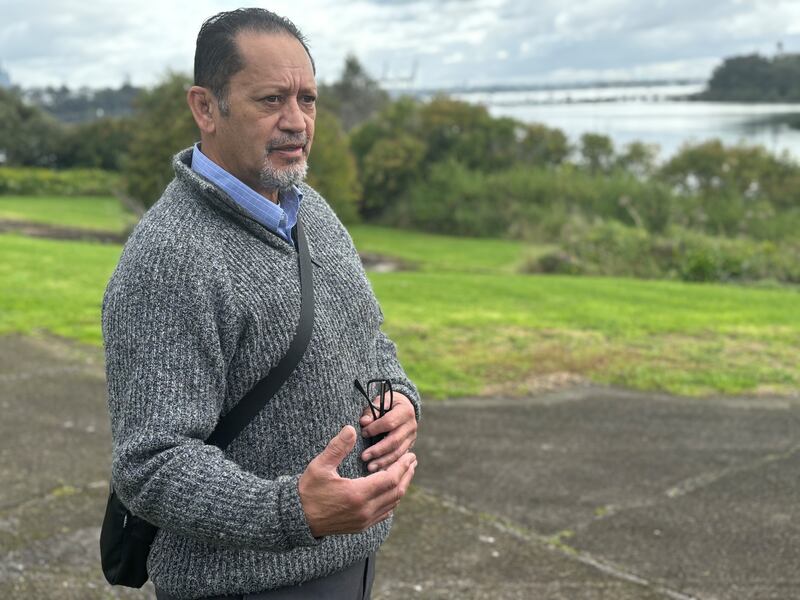Ngāti Whātua Ōrākei siblings Steve and Len Phillips have occupied a piece of real estate in Remuera following a decision by Whai Rawa, the commercial arm of Ngāti Whātua Ōrākei, to offer the whenua on a long lease.
The land, at 246-266 Ōrākei Rd in Remuera, overlooks Hobson Bay. It’s only a tiny piece of land at 11,000 square metres and is next door to the Ōrākei train station. Still, it’s a jewel for some of the whānau in Ōrākei and has cultural significance for the iwi, with the whenua being a part of a network of pā, known as Ō-Rākei-iri-ora.

According to Steve Phillips, it was by sheer luck that whānau from Ngāti Whātua Ōrākei found out about the lease of this prime piece of real estate.
“One of our hapū members was coming home from work early one morning and saw the for sale sign. So he took a photo of it and sent it to me. From there, we started making inquiries and found that it had been put on the market and that the expressions of interest were closing on the 5th of June.”
Whānau want consultation
He says whānau were not consulted on the decision and is calling on the Ngāti Whātua Ōrākei Trust Board to call a special general meeting so the iwi can decide what to do with the whenua.
“Initial feelings? We were quite upset, really because there had been no kōrero taking place prior to their decision to put it on the market.”

“There was absolutely no consultation with the wider hapu about leasing this land.”
“What we have heard from kaumātua and kuia is that this is a place of significance for Te Arawa, just like some of the place names around here, Ō-Rākei-iri-ora, Ō-Kahu-mata-momoe.”
Auckland’s hidden gem
The plan is to lease the whenua for 175 years, with leaseholders paying upfront the cost of the lease, with estimates of between $30 and $40 million for the duration of the lease.
On its website, before the closing of expressions of interest on June 5, Colliers Auckland, which held the listing, said the property was “located just 6 km from Auckland CBD and bolstered by its underlying business mixed-use zoning, this site allows for a myriad of development possibilities.”
Phillips says the land is far too valuable to give up for 175 years.
“Considering that our corporate board and our trust board believe that a 175-year lease is the best option, I’m sure the wider hapu would come up with better solutions than that.
“The first time we had any contact with this whenua here was when we had a series of tangihanga at the marae and our carvers were unable to continue their mahi recarving the maihi on the wharenui.”
“So they brought a shipping container down and continued that mahi down here.”

In a statement, Ngāti Whātua Ōrākei says its board members are elected by whānau to make decisions on behalf of the iwi to support the collective aspirations not only for the 7,000 uri o Tuperiri but for the future generations too.
“Ngāti Whātua Ōrākei uri membership has grown exponentially, 50% over the past five years. With the current economic climate and its challenges, costs are increasing and we need to look at ways to continue to support our whānau.
“Many hui have been held over the years to inform and determine how our land assets are managed so we can continue to support the growing aspirations of Ngāti Whātua Ōrākei. Most recently, a whānau hui was held to discuss our whenua at 246 Ōrākei Road, with further hui planned.”
Ngāti Whātua Ōrākei says it bought the 246 Ōrākei Road whenua from the Crown in the mid-90s. In 2005, the whenua was leased for 70 years to retain ownership and at the same time generate income to support the growing aspirations of Ngāti Whātua Ōrākei.
“It has subsequently come back to the iwi and we have sought expressions of interest from potential investors with the original aim in mind – retaining ownership and generating income to support the growing cultural, social and economic aspirations of Ngāti Whātua Ōrākei.”


